
We are always told that we should write what we know. To an extent, that is true, but those who are writing murder mysteries, for example, are hardly likely to start poisoning/bludgeoning/shooting their nearest and dearest in the name of research. As a reader, though, you want to feel as though the writer really understands his subject, with the kind of expertise that seems so natural that it never shows.
Most of us, if we are honest, have experienced, even at the mildest level, the emotions that can, when taken to extreme and pathological levels, lead to such acts. Being human, we have every human emotion in our library of experience, even if some of them are gleaned through immersion in book or film, or experienced through dream. Even if we have to draw upon them and take them far beyond our own experience, we have a starting point in a reality with which we are familiar. We can write from what we know ourselves, even if we know only the edges or the fleeting shadows of such emotions.
I read an article by a fellow writer on a subject that plays a part in their work. It was well written, well presented, clear and accurate in its facts. The research had evidently been done but had, quite understandably from the writerly perspective, stopped when the need for facts to fit the work was fulfilled. Nothing at all wrong with that.
But as a reader, it left me snarling. Having worked with what was being written about for years, I know that what was portrayed was as two-dimensional as a child’s cardboard cut-out when compared to the reality.
For me, the problem was in the way that article portrayed the writer as having enough expertise in the subject to feel able to share it. What was written was presented as knowledge… which was true in as far as it went. It was accurate. What was lacking was any real understanding of what the writer was writing about; which meant that it was about as far from the truth as you can get.
Accuracy belongs to knowledge, truth comes from understanding… and understanding comes with experience.
For some reason… for it was a totally different subject… it reminded me of when I had landed myself a job as a transport manager in heavy haulage. I had no qualifications, no knowledge other than several years driving a white van and no experience of running a fleet of vehicles.
My boss worked on the principle that whatever he wanted done, the lads would have to find a way to do. He knew how wide the lorries were, what the reach of the hiab cranes were and, theoretically, how long it would take to get from A to B. But he lacked any practical experience and the jobs he planned invariably went wrong. He tried to cram too many jobs into each day, the drivers resented what they were asked to do, phoned in at the slightest hiccough and were inflexible in their approach. Every day, at least one of his jobs had to be carried over to the next, leaving the drivers under increasing pressure from the snowball effect and the customers understandably disgruntled.
I started staying behind after hours and coming in at weekends, on my own time, to learn about the job. I learned, by getting behind the wheel in the yard, about the difficulties of manoeuvering forty-odd tonnes and sixty-odd feet of articulated vehicle. The lads were happy to teach me. I learned too how to use the hiab cranes… how the ‘portable’ buildings they lift swing in the wind, how dangerous overhead cables can be and how limited even the most precise operator is by the environment and weather in which they are working. I even learned how to position and plumb-in the mobile washroom blocks.
I already understood from my white van days, that the distance even the best electronic map can give bears no relationship to the time a drive will take in, say, central London, where a mile can take an hour or more to travel. Or that twenty miles of country lane takes as long for an articulated lorry as sixty miles of motorway. And while I was about it, I got to know the men who drove the lorries; I learned about their families, their hobbies, their lives and how to take that particular lorry-driver humour and give it back with good measure.
The modicum of understanding I had gleaned by rolling up both proverbial and literal sleeves made all the difference. Even though I had barely scratched the surface of their expertise, the result was a real and mutual respect. I made sure the jobs were do-able and the lads worked miracles for me; they never, ever let me down on a job, even the most bizarre and we had plenty of those.
As a reader, I want at least the illusion of that same commitment from a writer. Knowledge is no more than theory and it is not until you put it into practice, in some way at least, that you have any hope of approaching an understanding of the reality.
So what can you do when you have to write about something that is completely outside your ken? Facts are a good place to start… but research widely, both theoretical and subjective accounts if you can. Don’t just stick to one perspective. Try and relate to what it is that you are learning about at a personal level or, if it is feasible, experience it for yourself.
If you are writing about an artist, for example, pick up a paintbrush, put your hands in oil paint, feel the texture of a canvas with fingertip and bristle… smell that magical combination of copal varnish and turpentine. You don’t have to be a Rembrandt, just apply paint… and whatever the result on canvas, you will have true subjective understanding of the process.
There are things, though, for which every writer will have to use the ultimate tool…imagination. And that too is a place where experience can be gained if we are prepared to immerse ourselves for a moment in the emotions our minds can conjure.
Readers are people too and they are neither blind nor credulous. There is a subtle difference between drawing upon abstracted experience… as you might if writing a murder mystery where you would learn about forensics, anatomy, and psychology as well as reading real-life accounts… and presenting cardboard facts as reality. Weave the imagined experience around the facts until they take on a life of their own. But don’t, for goodness sake, present just the facts without working with them and bringing them to life for you, even if only in imagination.
‘Expert’ and ‘experience’ share the same etymology for a reason.


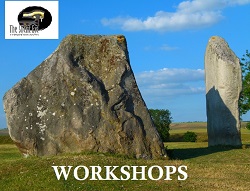

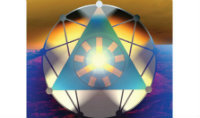

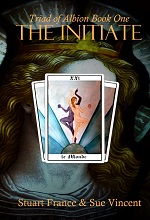


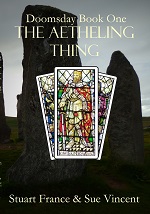
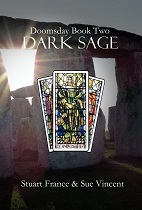

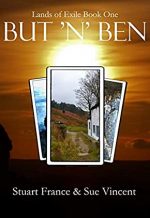



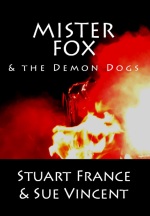


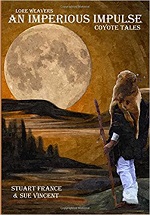


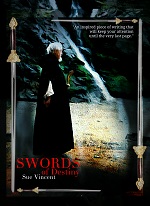

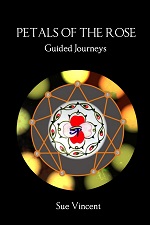

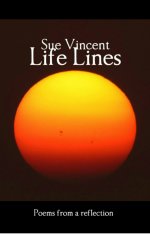
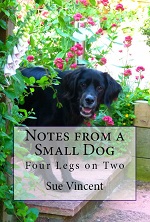



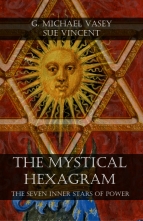

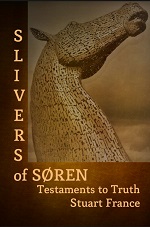


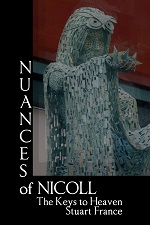


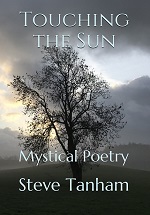

I love the idea of being as tactile as possible in your writing. Trying to experience things will give you texture and liven up the piece for sure. Great points!
LikeLiked by 2 people
Thanks, Carmen. You can’t experience everything exactly…but you can still use what you know to ‘go there’ in imagination.
LikeLiked by 2 people
If you only wrote what you “know,” there’d be no science fiction or fantasy. No fairy tales. We can create recognizable CHARACTERS but we don’t need to create situations that are familiar. Imagination matters 😀
LikeLiked by 2 people
Imagination lets us take our own experience and use it as the basis for things we will never do or know… but it all starts with what we do know and needs the alchemy of imagination to make it ‘real’. 🙂
LikeLike
Reblogged this on France & Vincent.
LikeLiked by 1 person
Thanks as always for an excellent article, Sue. It is really helpful. After I read this, I was trying to figure out if any of this fit me, and the more I tried to understand the more I honestly did not know. I try to keep my blog up in some way or other as often as I can. Right now it is the thing that helps keep me going when I have a lot of pain physically as well as mentally with all we have going on.
LikeLiked by 1 person
I do hope things ease for you soon, Anne.
LikeLike
That makes a whole lot of us, Sue. Richard’s health is getting worse each day, and I am pretty overwhelmed. I am trying to get back to my lessons, but I need to do those when I have a clear head. I really miss them though, and that is the truth.
LikeLike
Great post! We do need to do our research and understand what we are writing about. Thanks for sharing Sue!
LikeLiked by 1 person
Thanks, Sadje. There are many routes to understanding…and they don’t all have to be walked in fact when a combination of research and imagination works just as well. 🙂
LikeLiked by 1 person
I try to research if I am writing about something new to me. I feel more confident that way. Our imagination can take us as far as our knowledge.
LikeLike
I spend an awful lot of time on research…even though I know only a tiny percentage of what I learn will make it onto the page.imagination is what beings the facts to life.
LikeLiked by 1 person
That’s so true.
LikeLiked by 1 person
Reblogged this on Chris The Story Reading Ape's Blog.
LikeLike
Thanks for sharing, Chris. Xx
LikeLiked by 1 person
Thank YOU for the great article, Sue 🤗❤️🤗
LikeLike
🙂 x
LikeLiked by 1 person
Sometimes I think a piece of writing is more enjoyable if the technical details are left out. One reason I never read science fiction—authors put all the details in and it bores me rigid. As long as the basic facts are right, it’s usually the characters and their reactions/emotions that carry the story rather than intricate descriptions of the bit of the sprocket that spins round inside the gasket, and what the horse’s inner hock smells like when it has worms, and which of the dililthium crystals need recharging.
LikeLiked by 1 person
I don’t mind some detail…as long as it is plausible. But I agree that it is always the characters that carry the story.
LikeLike
I suppose I’m just a complete nulle when it comes to anything remotely mechanical that the mere mention of machinery makes my eyes glaze over. I don’t need to know how it works, I’ll believe anything 🙂
LikeLike
I must admit that where details is concerned, I prefer either real science, as opposed to ‘just-because-I-can’ sci-fi inventiveness. The science in the Hitchhikers Guide, for example, is theoretically sound… but doesn’t intrude. 🙂
LikeLike
If it doesn’t intrude, that’s fine by me. I really dislike the long explanations of why and how something works, and the intricacies of how to fix it. I have your attitude with regard to magic. When the hero is in a fix, they make everything all right by magicking the problem away. Too easy. Boring.
LikeLike
Magic doesn’t actually work that way 😉
LikeLike
Which is why stories that use it like that don’t work.
LikeLike
Agreed.
LikeLiked by 1 person
There has to be a sense of something else words are words not stories – as a scientist I can rarely read science scenes in novels – it’s not that they’re often inaccurate it’s more they’re detached from reality, have no meaning to me. Thanks for an interesting post, Sue, it got me thinking as I stare out of the window looking at the rain!
LikeLiked by 1 person
Readers do have to meet writers halfway, with that willing suspension of disbelief. ..but in my own areas, I know exactly what you mean.
LikeLiked by 1 person
Writers need an incredible imagination to put themselves in the shoes of their characters…
LikeLike
I agree. But you can tell the difference between those who do and those who just run with research.
LikeLiked by 2 people
Reblogged this on anita dawes and jaye marie.
LikeLike
Thanks for sharing, Jaye x
LikeLiked by 1 person
I am the first to admit that I don’t know everything but I have been in an industry for over 20 years that is littered with misconceptions, fads, trends, ‘expert’ pronouncements, celebrity juju and sometimes downright dangerous recommendations, such as the latest from Gwyneth Paltrow on ‘leanest liveable weight goal’ which in most’s opinion is going to fuel an further increase in anorexia and other eating disorders. These days of television and movies all with the latest forensics and technology, I would be hard pushed to write a murder mystery or thriller or science fiction.. even children are more knowledgeable than I am. I am hoping I have half a chance writing fairy stories..xx
LikeLike
That sounds incredibly dangerous and misleading! I can see how many young women might embrace the idea, though, and end up damaging their health. It seems to be an irresponsible statement.
As we access the realms of fairy through the imagination, one way or another, we have all the tools to write fairy stories… though research also uncovers a darker side to their history. xx
LikeLiked by 1 person
One would hope we all do the theoretical research of something we don’t know, but if backing it up with practical research is impossible then please, please, run it by someone who does have practical experience. My personal bugbear is authors who know nothing about horses thinking they can read up on them and then have them or the rider commit the biggest faux pas going. And if you can’t find an expert to check it over then skim the details.
LikeLiked by 1 person
I agree, Lindsey. That is exactly the type of thing that bugs me. If you don’t know or aren’t sure you have it right…ask.
LikeLike
Reblogged this on The Light Behind the Story.
LikeLike
Thanks, for sharing, Alethea x
LikeLike
Thanks for the thoughtful post, Sue. I like the example you provided as being a transport manager. Those people in the know are going to be offended when writers put out information that doesn’t jive with real life. My dad was a wildlife biologist, and it would drive him nuts when someone would paint a picture or make a model of a bird with incorrect coloring and marking.
LikeLiked by 1 person
We all have our pet peeves where that kind of thing is concerned, I think, Pete. As writers, we have to do our best to tell the story, but perhaps not claim expertise we don’t have.
LikeLiked by 1 person
Sue, Thank you for sharing such strong and wonderful advice. I greatly appreciate it.
LikeLiked by 1 person
Thanks, Beckie. I don’t believe any subect is beyond us if we can really use our imagination to make the research live.
LikeLiked by 1 person
I agree with you fully. I try to implement that, especially when writing a story, or my mental health series. It’s best to be accurate.
LikeLike
Always… but it needs more than ‘just’ accuracy 🙂
LikeLiked by 1 person
This is true…
LikeLiked by 1 person
Thanks for a reflective article. I’ve always chafed at the “write what you know” dictum so appreciate your thoughts on how to write deeply and meaningfully when you haven’t had the exact experience you’re writing about.
LikeLiked by 1 person
We can approach most situations through our own experience, even if we are never likely to experience them directly in our lives.
LikeLike
A wonderfully well thought out post, Sue. I must be honest that I have never seen a ghost or a dead body but I do undertake serious research on this I write about that I haven’t experienced and I imagine how the person would have felt.
LikeLike
There are plenty of accounts out there to research and all that is needed once we have the facts is to put ourselves in their place… although we will still ‘see’ and ‘feel’ through our own lens to some extent.
LikeLike
Reblogged this on adaratrosclair.
LikeLike
Thank you for sharing 🙂
LikeLiked by 1 person
You’re welcome.
LikeLiked by 1 person
What a wonderful post, Sue. I love reading a well-researched book where the author has enough knowledge to portray scenes or characters in an honest and believable way. You just can’t write about the 1800s and use today’s slang in conversations or refer to technology, whether a modern mode of transportation, appliance, or cell phone, and have a story the reader can connect with and find entirely plausible. I’ve read some poor tries by wanna-be authors who have tried to write with little or no thought or research into what they are writing about. I’m wading through one now that was given to me by a local author-to-be who wants my review to help launch her book which is so disconnected and lacks depth, readability, and which covers a subject she obviously knows nothing about. She really needs more help than I can give her.
LikeLike
The magic of fiction happens when you can believe yourself to be ‘there’… and that takes a lot of background work.
LikeLiked by 1 person
Pingback: Seven Links 10/19/19 Traci Kenworth – Where Genres Collide Traci Kenworth YA Author & Book Blogger
>>”It was accurate. What was lacking was any real understanding of what the writer was writing about; which meant that it was about as far from the truth as you can get.”
Aye, I’ve read things like that too. (Maybe I’ve written things like that as well. I hope not. Ulp.)
I think it was a thriller and the writer was obsessed with getting the gun factually correct in every way. But then they missed the point about pointing a gun at another human being. They missed the human, emotional, awful truth of it. At least it felt that way (I have zero experience of guns, having a somewhat rural upbringing in the wilds of East Yorkshire).
When folk say “write what you know”, I think they mean “write what you can meaningfully understand”. If you can acquire that understanding through factual research plus the application of your imagination, combined with your knowledge of people, of character and struggle – then I guess you’re writing what you know. But as you rightly note, the facts aren’t the knowing. Agreed.
LikeLike
I have never pointed a gun at another human being either…and can only begin to imagine how that must feel.
You are right in your terms there…meaningful understanding is often what is lacking, but I don’t think most things are out of reach if we are prepared to let emotion, experience and imagination work together.
As to East Yorkshire… I may be a West Yorkshire lass myself, but I know it well 😉
LikeLike
Great points. I teach a creative writing class and sometimes I am hesitate to tell them the classic “write what you know.” Thanks for the insight!
LikeLike
I think we ‘know’ most things, if we use research and imagination to extend experience.
LikeLike
Accuracy belongs to knowledge, truth comes from understanding… and understanding comes with experience.
This was a beautiful quote :”’)
LikeLike
Thank you 🙂
LikeLiked by 1 person